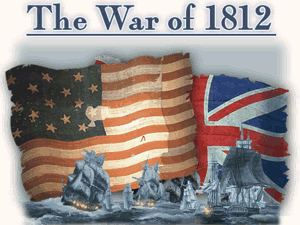The term ‘Opium Wars’ refers to the period of Anglo-Chinese conflict between 1839 and 1860. This period of unrest was punctuated by two outbreaks of armed conflict.
The Opium Wars began when the Chinese government tried to stop the illegal importation of opium by British merchants.
The First Opium War was sparked off by the detention of a number of (mostly British) traders and the confiscation of more than 20,000 cases of opium at warehouses in Guangzhou in March 1839. In July 1839 a group of drunken British and American sailors killed a Chinese civilian at Kowloon. The Chinese demanded the British surrender the murderer, but British First Superintendent of Trade Charles Elliot refused to do so.
In this power struggle the Chinese forced all British merchant ships to retreat from Macao to Hong Kong. British merchant ships attempt to land at Kowloon for supplies four days later and were attacked by Chinese warships.
British responded by sending an expedition of warships to the city in 1840. The British fleet of some 16 warships, including four steam powered gunboats, which represented a revolution in military affairs in Asian waters retaliated by shelling Guangzhou and seized an area of coast around the village of Hong Kong to settle merchants expelled both from Guangzhou and Macao.
The British took Xiamen and Ningbo. Meanwhile in 1842 land reinforcements from the Indian Army were put to work seizing control of key access points on China’s Grand Canal. The British won a quick victory.
The First Opium War ended with the signing of the Treaty of Nanking in 1842. By this treaty, and a supplementary one signed 1843, China was forced to pay a large indemnity, open five ports to British trade and residence, and cede Hong Kong to Great Britain.
The Second Opium War (or Arrow war) followed the detention of a British registered boat in 1856 and charged its crew with smuggling.
Eager to gain more trading rights, the British used the incident to launch another offensive, precipitating the Second Opium War. British forces aiding by the French, won another quick military victory in 1857.
The war ended with the signing of the Treaty of Tientsin in 1860, following an advance on Beijing by a British military expedition.
Opium War, First (1839-1842)
The Opium Wars began when the Chinese government tried to stop the illegal importation of opium by British merchants.
The First Opium War was sparked off by the detention of a number of (mostly British) traders and the confiscation of more than 20,000 cases of opium at warehouses in Guangzhou in March 1839. In July 1839 a group of drunken British and American sailors killed a Chinese civilian at Kowloon. The Chinese demanded the British surrender the murderer, but British First Superintendent of Trade Charles Elliot refused to do so.
In this power struggle the Chinese forced all British merchant ships to retreat from Macao to Hong Kong. British merchant ships attempt to land at Kowloon for supplies four days later and were attacked by Chinese warships.
British responded by sending an expedition of warships to the city in 1840. The British fleet of some 16 warships, including four steam powered gunboats, which represented a revolution in military affairs in Asian waters retaliated by shelling Guangzhou and seized an area of coast around the village of Hong Kong to settle merchants expelled both from Guangzhou and Macao.
The British took Xiamen and Ningbo. Meanwhile in 1842 land reinforcements from the Indian Army were put to work seizing control of key access points on China’s Grand Canal. The British won a quick victory.
The First Opium War ended with the signing of the Treaty of Nanking in 1842. By this treaty, and a supplementary one signed 1843, China was forced to pay a large indemnity, open five ports to British trade and residence, and cede Hong Kong to Great Britain.
The Second Opium War (or Arrow war) followed the detention of a British registered boat in 1856 and charged its crew with smuggling.
Eager to gain more trading rights, the British used the incident to launch another offensive, precipitating the Second Opium War. British forces aiding by the French, won another quick military victory in 1857.
The war ended with the signing of the Treaty of Tientsin in 1860, following an advance on Beijing by a British military expedition.
Opium War, First (1839-1842)


